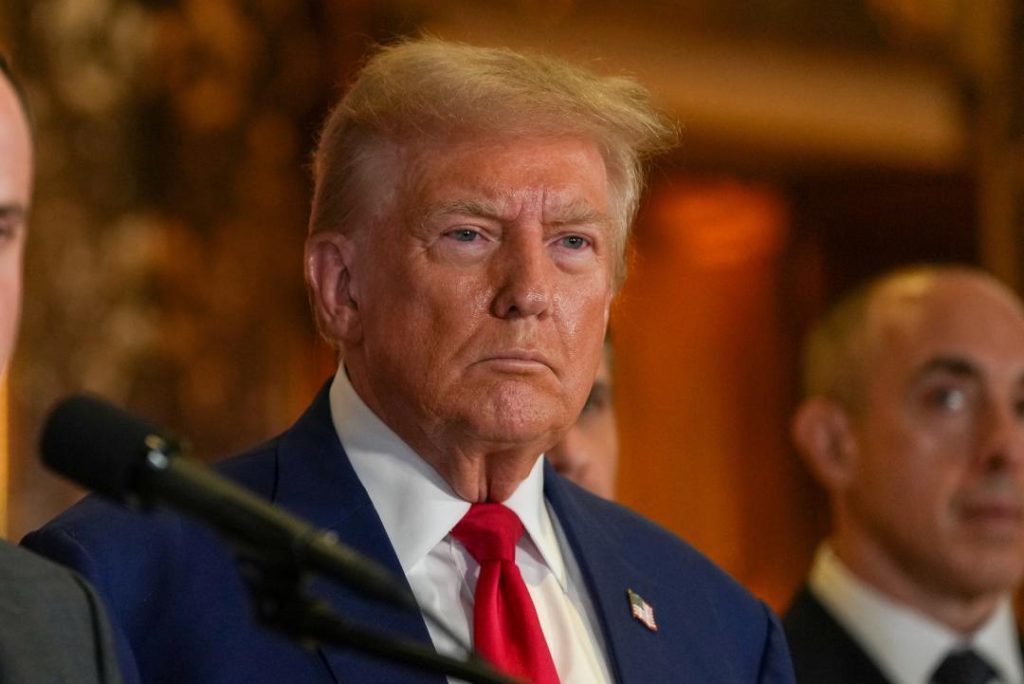
1929 Depression Will Happen Again if Court Rules Against Tariffs: Trump
In a recent statement, US President Donald Trump has defended his decision to impose tariffs on a wide range of United States trading partners, citing the positive impact it has had on the stock market. However, Trump also issued a dire warning, stating that if the court rules against his tariffs, it would be “1929 again” – a reference to the Great Depression.
The tariffs in question were imposed in April, and a litigation challenging their constitutionality is currently pending in court. Trump’s comments come as the global economy is already facing increased uncertainty and volatility, with many economists warning of the potential risks of a trade war.
Trump’s remarks have sparked widespread concern and debate, with many experts questioning the accuracy of his claims and the potential consequences of a court ruling against his tariffs. In this blog post, we will explore the implications of Trump’s statement and examine the potential consequences of a court ruling against his tariffs.
The Impact of Tariffs on the Stock Market
Trump’s assertion that his tariffs have had a “huge positive impact” on the stock market is not entirely supported by the evidence. While it is true that the US stock market has experienced a significant rally in recent months, there are many factors that have contributed to this surge, including the Federal Reserve’s monetary policy decisions and the recovery of the global economy.
However, it is also true that the tariffs have had a significant impact on the US economy, particularly on certain industries and sectors. The tariffs have led to higher prices for imported goods, which has increased costs for businesses and consumers alike. This has had a disproportionate impact on small businesses and low-income households, who may struggle to absorb the higher costs.
The Risks of a Trade War
A court ruling against Trump’s tariffs could have significant consequences for the global economy. A trade war, characterized by a series of tariffs and retaliatory measures, could lead to a sharp reduction in international trade and a decline in economic growth.
The International Monetary Fund (IMF) has warned that a trade war could lead to a significant decline in global economic output, with estimates suggesting that a 10% increase in tariffs could lead to a 1.5% decline in global output. This could have significant consequences for economies around the world, particularly for countries that are heavily reliant on international trade.
The Lessons of the 1929 Depression
Trump’s reference to the 1929 Depression is a stark reminder of the devastating consequences of economic downturns. The 1929 Depression, also known as the Great Depression, was a global economic downturn that lasted for over a decade and had far-reaching consequences for the world economy.
The Depression was triggered by a combination of factors, including a housing market bubble, excessive debt, and a failure of regulatory systems. The crisis was exacerbated by a series of poor policy decisions, including the passage of the Smoot-Hawley Tariff Act, which raised tariffs on imported goods and led to a sharp decline in international trade.
The Depression had significant consequences for the global economy, including widespread unemployment, poverty, and social unrest. It also led to a significant decline in international trade and a sharp reduction in economic growth.
Conclusion
In conclusion, while Trump’s assertion that his tariffs have had a “huge positive impact” on the stock market may be overstated, there is no denying that the tariffs have had a significant impact on the US economy. A court ruling against his tariffs could have significant consequences for the global economy, including a trade war and a decline in economic growth.
As we look to the future, it is essential that policymakers prioritize economic stability and avoid the mistakes of the past. This includes avoiding protectionist policies and instead promoting free and fair trade, as well as addressing the root causes of economic downturns.
Source:



